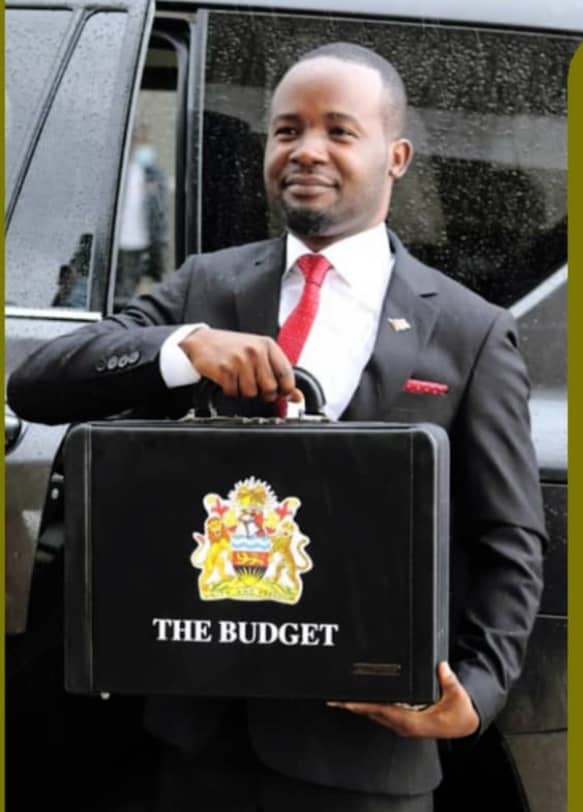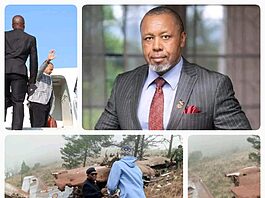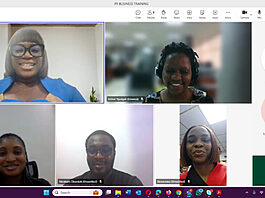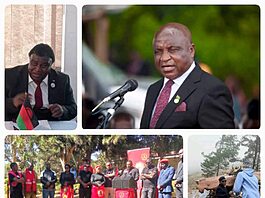
But the Helper, the Holy Spirit, whom the Father will send in my name, he will teach you all things and bring to your remembrance all that I have said to you. – John 14:26
“If You are planning for a year, sow rice; if you are planning for a decade, plant trees; if you are planning for a lifetime, educate people” – Oriental Proverb
Famous Agony Aunt columnist Ann Lander (real name Esther Eppie Lederer) once responded to a couple that bemoaned the cost of their three children’s college education. Her response has since become the mantra in the defense of increased government allocation to the education sector. Landers’ response “If you think education is expensive, try ignorance.” (October 6, 1975, Washington Post). The quote has been quoted over and over and was once accredited to former Harvard President Derek Bok.
While the sector of education costs for educating the nation’s children is expensive, the other side of the coin, called ignorance, is equally expensive.
It was exhilarating to grasp the message in the Minister of Finance Sosten Gwengwe’s 2022-2023 Budget statement (delivered on February 18, 2022, in Parliament) that highlighted the government’s spending plans. In the statement, the education, health, and agriculture sectors “claimed a lion’s share of the 2022/23 national budget….” With an accumulated total of MKw1 193.47 trillion, a gigantic 42.1 percent rise.
“These resources will cater for wages and salaries; operations for primary and secondary schools, technical and community colleges and public universities as well as development projects in this sector,” Minister Gwengwe said.
According to media reports, the Education sector allocation of K 462.24 billion, is the biggest scoop among the three sectors. And is K134.94 billion more than the K327.3 billion funds the sector received in the 2021/22 budget.
Also on the drawing board is funding for the construction of primary schools, girls’ hostels, Inkosi M’mbelwa University in Mzimba, Mzuzu University library, and science laboratories and libraries in community day secondary schools.
This is a grand opening to getting Malawi on the path to meeting the international standards outlined in the requirements of the 2015 United Nations Educational, Scientific and Cultural Organization (UNESCO).
Civil Society for Education Coalition executive director Kondowe bemoaned the fact that the government is not doing enough, especially in terms of meeting the needs of learners in special circumstances like those living with disabilities, citing that “a lot of learners are struggling to pay school fees and we need bursaries.”
On the other side, social media was awash chockfull with posts faulting the budget statement, complaining that the health sector was under-funded. Joining the dialogue, I threw in my penny’s worth and rhetorically asked, “why is the Malawi Government allocating so much funds on education?” The answer is simple and complicated: increased funding in education leads to an educated community that has self-care inclinations; the complication is getting the horse, in the scenario the students, to drink well; excuse the pun.
The other complication is that teachers are in the profession to serve in producing Malawi’s future Good Citizens. They are not doing anyone any favor by being teachers. There is a need to re-orient, change the mindset, or whitewash teachers’ MOs.
The response to my input gave a rebounder question: There is less impact on that, most of the school infrastructures are donor-dependent, pupils are learning under trees and even dilapidated structures, what exactly is the money for?
My response was to ask the new colleague on the information highway, was for him to “do the math.” I delved into history and elucidated my colleague that when former President Bakili Muluzi launch the laudable 1994 free primary education program, it was on poorly negotiated terms, the donors pulled a lot of the highly-funded nation-building programs that his predecessor, former Life President Dr. H. Kamuzu Banda secured for Malawi from the Western donors because during his 31- year rule, he was the “top defender of democracy and hater of communism.”
With Muluzi at the helm, free primary education ushered in truckloads of school children, over-populating the infrastructures at that time. But the free primary education being introduced when donors were pulling out of donor-funded programs such as the Malawi Book Service and free tertiary education/ complicating the picture was the no school uniform law. While parents of school children were happy about the law, at the stroke of the pen, killed the khonde tailor industry.
Education is a powerful tool of national progress, advancement, mobbing forward. Without education, the country would just be rearing a brood of ignorant people, into a nation with the bleakest of futures. This is what the megalomaniac, power-hungry, tyrant, power-crazy vulture nations want Malawians to be. We must resist them at all costs. We must resist them by vigorously educating our young.
Educating the community is never costly; indeed, it is ignorance that comes from not investing in the education of a population, which is costly and expensive.
Thank you Minister Gwengwe for funding the education sector!






